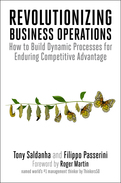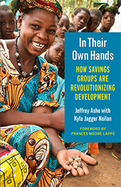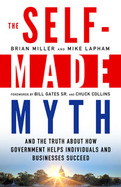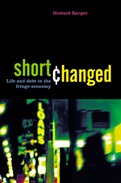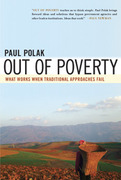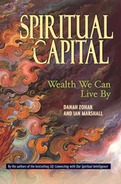If you have a great product, but don't have the operations in place to efficiently and effectively support it-production, manufacturing, sales, finance, human resources, etc.-you won't succeed. Product innovation is seen as flashier and so gets far more attention, but you can create an enduring competitive advantage by revolutionizing business operations.
The problem is most attempts to improve business operations are reactive, sporadic, and siloed. Tony Saldanha and Filippo Passerini's Dynamic Process Transformation model provides a living model for constant, ongoing process evolution and optimization.
The authors focus on maximizing three drivers of change. First, open market rules-each business process must be run as a separate business, instead of via monolithic mandates coming down from on high. Second, there must be unified accountability- outcomes must be clear and consistent across the company, instead of being siloed within departments. And third, there needs to be a dynamic operating engine, a methodology to convert the constantly changing business process goals into tactical day-to-day employee actions.
With numerous examples from leading companies, this book shows how to proactively keep business processes across the company from becoming obsolete and take advantage of a neglected key to success.
2014
- A better way to fight poverty: Ashe and Neilan show that savings groups are simple, extremely low cost, self-managing and spread virally-there are savings groups in 100,000 villages in 65 countries
- Sponsored by Oxfam America: This book was developed with Oxfam America, part of an international coalition of Oxfams operating in 90 countries-in 2005 Ashe and Oxfam, with their partner Freedom from Hunger, pioneered a program to expand savings groups worldwide.
Two and a half billion people worldwide, too poor and too rural to be served by traditional financial institutions desperately need a better way to save and borrow. Jeffrey Ashe and Kyla Jagger Neilan say the answer is savings groups.
In savings groups, members put what they can in a communal pot and make loans to individual members for needs like buying food to survive the "lean season" before the harvest, building a business, investing in livestock, or paying school fees. Once a year, the entire pot plus interest on loans is divided among the members. Unlike other poverty alleviation options, savings groups are run entirely by their members, and, they spread by word of mouth from village to village, allowing them to reach remote areas with remarkable success. By catalyzing the problem-solving capacity of the poor they avoid subsidies, debt, dependency, and high costs while reducing hunger and building assets and solidarity.
Ashe and Neilan show that applying savings group principles could revolutionize development in areas as diverse as health, agriculture, education and grassroots political empowerment. "Being organized gives us courage," as one woman said. It is their courage translated into action that explains the success of "in their own hands" development.
2012
Exposes the damage caused by the myth of the "self-made man" and reveals how wealth is actually created.
- Exposes the damage to our political discourse and policy choices caused by the myth of the "self-made man"
- Offers testimony from a variety of business leaders about the full range of contributions to their success
- Spells out actions we must take to lay the foundation for a renewed prosperity in America
The Self-Made Myth challenges the by-your-own-bootstraps narrative enshrined in American tradition and beloved by antigovernment activists to offer a more holistic view of the success of business leaders and entrepreneurs. While acknowledging the importance of hard work, creativity, and leadership, it highlights several crucial, often unrecognized factors, with a particular emphasis on the ways government and society help individuals: public education, research and development grants, social services, roads and highways, laws and regulations that establish a stable business environment, and many more.
Miller and Lapham explore the historic roots of the self-made myth and reveal the societal damage it continues to cause. They present profiles of business leaders who, in their own words, identify the kinds of support and assistance that were crucial to their success, including Warren Buffett, Ben Cohen of Ben and Jerry's, New Belgium Brewery's Kim Jordan, and philanthropist, filmmaker, and heiress Abigail Disney. They also disprove the arguments of individuals such as Donald Trump and Ross Perot who have helped perpetuate their own self-made success myths.
How we view the creation of wealth and individual success shapes our choices on taxes, regulations, public investments in schools and vital infrastructure, the legitimacy of extravagant CEO pay, and more. The Self-Made Myth acknowledges and celebrates the truth of society's contribution. It takes a village to raise a business-it's time to recognize that fact.
"It is critical to change the conversation about how wealth is created, who creates it, and the role of government, and this book does that effectively and importantly. And it couldn't be more timely. I urge you to read this book and get engaged in the debate about progressive taxes."
-Bill Gates Sr.
2005
-
Chronicles how fringe economy businesses ruthlessly and systematically exploit the poor and the middle classes
-
Feature dozens of personal stories from individuals whose lives have been ruined by participating in this fringe economy
-
Includes hard-headed, practical recommendations for reforming fringe economy business practices
2009
Drawing on his more than twenty-five years of experience, Polak explodes what he calls the “Three Great Poverty Eradication Myths” and lays out an alternative: providing the dollar-a-day poor with innovative, low-cost tools that allow them to use the market to improve their lives. Polak tells fascinating and moving stories about the people he and IDE have helped, especially Krishna Bahadur Thapa, a Nepali farmer who went from barely surviving to becoming solidly upper middle class. Out of Poverty offers a new and promising way to end world poverty, one that honors the entrepreneurial spirit of the poor themselves.
OUT OF POVERTY: What Works When Traditional Approaches Fail
- Offers a new, innovative and proven-in-the-field approach to alleviating world poverty
- Exposes the flaws in traditional approaches
- Includes moving personal stories of the people Paul Polak and his organization IDE have helped
2004
-
Provides a radical new philosophy for business that redefines its meaning and purpose and offers hope for a more sustainable future
-
Takes the concept of spiritual intelligence, pioneered in the authors' bestselling SQ: Connecting with Our Spiritual Intelligence, and applies it to the business world


